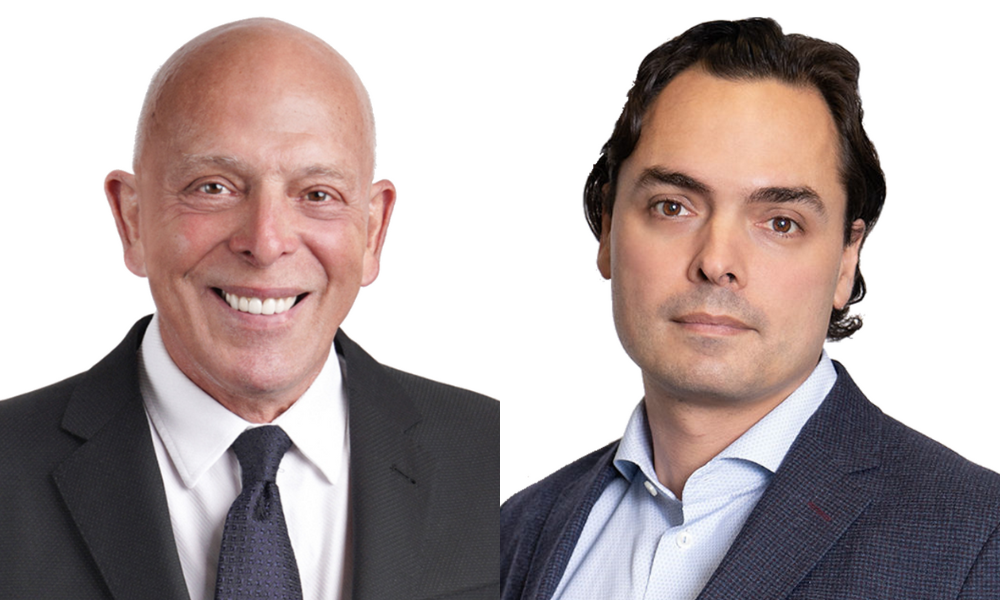John and Chris Nicola discuss their own generational transfer, as the son takes the CEO role from his father

John Nicola insists that his firm has grown far beyond just himself. Nicola Wealth, a firm John founded 30 years ago, now manages billions in assets for 5,000 households and employs over 500 people, in advisory, asset management, and support roles. They manage their own asset strategies, including a suite of real estate and private capital products with assets directly managed by Nicola employees. His name might be on the letterhead, but John will admit that the firm has become something almost more like an institution.
It was with the idea of building something lasting that Nicola Wealth recently announced a leadership transition. John will step down from his dual roles of Chief Executive Officer and Chief Investment Officer at the end of 2025. The CIO role will be taken on by current co-CIO Bijal Patel. The CEO role will be taken on by John’s son, Chris Nicola, who is currently serving as President of Nicola Wealth and was formerly the co-founder, President, and CTO at WealthBar, a robo-advice startup which sold to CI between 2019 and 2022. John and Chris spoke with Wealth Professional about what led to this transition and what it means for their firm and the wider industry.
“I’m a founder and because we started with eight people and $80 million in mutual funds, it’s kind of like the metaphor of the frog in the boiling water, it’s been slowly heating up over 30 years, so I’ve adapted to the environment,” John says. “Whoever replaces me is going to inherit an environment and they won’t really have a lot of time to adapt. The question then, is what’s my role in making that transition work as well as possible?”
John notes that this leadership transition process began around five years ago, with certain limitations already set. Nicola was not going to be sold to an external firm, and it was not going to preference an external leadership candidate. John is also not retiring, he is retaining his board seat and strategic oversight of the firm, and he is not selling his roughly 40 per cent stake in the firm. The idea behind this transition, he explains, was finding someone who could lead Nicola as a legacy asset into the next generation.
The fact that Chris Nicola is literally the next generation of John’s family was incidental to the intention, they say. His appointment was arrived at after a review process with three other internal candidates and a final decision by Nicola’s board. John says he kept himself at arm’s length as much as possible throughout the process and that Chris’ combined familiarity with the firm and success in wealthtech outside the firm won him the approval of the board.
“My background has largely been in technology, even when I was working at Nicola Wealth 30 years ago at the age of 15 building networks and working on the servers,” Chris says. “I worked in the software industry for startups which led me to co-founding WealthBar…everything you do when you run a startup, coming up with the business plan, the marketing plan, pitching investors, convincing clients to invest with you, that’s all experience I can apply to a more traditional but in many ways more sophisticated asset management firm.”
Chris’ appointment to the CEO role is as much a statement about Nicola’s technology focus as it is a statement about legacy. Chris’ believes his knowledge and roots in technology can help keep the firm ahead of the broader industry trends which are largely tech-driven. It’s that experience which John says helped earn Chris the role.
Chris himself acknowledges the responsibility of what he’s taking on, with his excitement to be in this role. He expressed gratitude for the support he’s already received from within the organization and notes that he will be leaning on Nicola’s other leaders where needed. The challenge now before him, he says, is to maintain the firm’s excellence in execution while pushing to grow and scale into new regions. Finding the right people to power that growth, he says, will be core part of that challenge.
Both Chris and John note, however, that the firm is in a place where a change like this can be made. John says he expected some kind of pushback from clients, staff, or stakeholders once they read about the transition. Instead, he says, he received congratulatory messages and well wishes. Nobody expressed worry, criticism, or negative comments.
“They’re happy with the choice of Christopher, but they’re happy that there’s actually an organized transition plan,” John says. “I think people are seeing that we’re preparing ourselves for another 30 years.”



